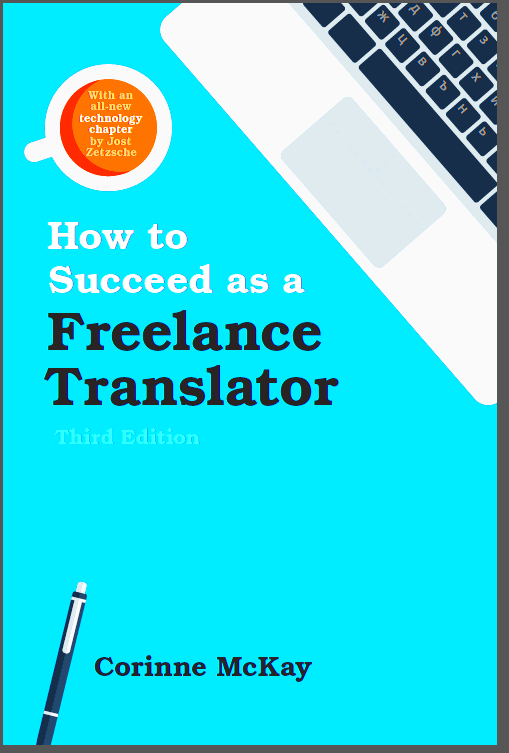Freelance translators play a critical role in bridging communication between different languages and cultures. They convert written content from one language to another, ensuring accuracy and clarity. This goes beyond simply translating words—it’s about conveying the intended meaning in a way that resonates with the target audience.
Your tasks as a freelance translator may differ based on the demands of your customers. These can consist of translation of legal documents, promotional materials, books, websites or even school papers. Knowing what you should do entails speaking several languages and being aware of both cultures and a promise to provide quality work that is accurate.
Key Responsibilities of a Freelance Translator:
- Accurately translating written content while preserving the original meaning
- Understanding and adapting cultural nuances in the translation
- Working with clients to meet their specific needs
- Delivering translations on time and with quality
Building the Right Skills for Translation Success

To become a successful freelance translator, you must acquire numerous skills. Being fluent in two or more languages is a start point but it is not everything. Language fluency should be paired with technical know-how in order for one to be distinguished among others within the same profession.
Here’s a breakdown of key skills for successful translators:
| Skill | Why It Matters |
|---|---|
| Language Proficiency | Mastery of both the source and target languages is crucial for accuracy and fluency. |
| Research Skills | Translators must research industry-specific terminology and unfamiliar phrases to ensure precision. |
| Cultural Awareness | Understanding cultural differences helps ensure that the translation resonates with the target audience. |
| Time Management | Being able to manage deadlines and work efficiently is crucial to building trust with clients. |
Also, it is necessary that you constantly learn. Additionally, this will enable you keep track of linguistic shifts, novel developments and upcoming industries which act as your competitive advantage.
Also Read This: What to Do on Fiverr to Make Money
How to Choose Your Translation Niche

In a freelance profession, just like many others, the selection of a suitable translation niche can have immense implications. Concentrating on one area of expertise transforms you into an authority thereby increasing your appeal to prospective customers requiring profound understanding in that particular field.
Here are some popular niches to consider:
- Legal Translation: Involves translating contracts, agreements, and legal documents. Requires familiarity with legal terms in both languages.
- Medical Translation: Focuses on translating medical records, prescriptions, and clinical studies. Precision and understanding of medical jargon are crucial.
- Technical Translation: Includes translating manuals, patents, and technical papers. Knowledge of the subject matter is essential.
- Marketing Translation: Involves adapting promotional materials, advertisements, and websites. A creative approach and cultural sensitivity are key.
Consider your interests, prior experience and history in selecting a niche for yourself. Selecting a field that makes you happy is very important since it will help you remain driven and progressively develop your skillset on daily basis.
Also Read This: Can I Get My Book Formatted on Fiverr?
Setting Competitive Rates as a Freelance Translator
One of the biggest challenges for freelance translators is deciding how much to charge for their services. Setting the right rates requires balancing what you believe your skills are worth and what clients are willing to pay. Pricing yourself too low can undervalue your work, while setting rates too high might drive clients away.
Here are some factors to consider when setting your rates:
- Experience Level: More experienced translators can charge higher rates due to their expertise and track record.
- Language Pair: Some language pairs, such as those involving less common languages, tend to command higher rates because there are fewer qualified translators available.
- Industry Niche: Specialized niches like legal or medical translation often allow for higher rates due to the complexity of the work involved.
- Project Type: Long, complex documents may justify higher rates than simple, short translations.
- Market Rates: Research what other translators in your niche are charging. This will help you set competitive yet fair rates.
Most independent translators demand payment for each word, but hourly and project fees may be proposed too. Note that your prices should vary according to how difficult the job is, how fast it has to be done or if it requires any particular expertise.
Do not forget about the fact that offering your services at reasonable prices may aid in client attraction and ensure long-term viability of freelance careers eventually.
Also Read This: Does Fiverr Auto Cancel Orders? Understanding Fiverr’s Order Cancellation Policy
Finding Clients and Securing Translation Projects
Acquiring customers as a freelance translator may be tedious but using the right approaches; one can create an unbroken flow of assignments. Whether you are beginning or have unleashed yourself in freelancing a long time ago, understanding where and how to source for clients is essential in your success.
Here are some effective ways to find clients:
- Online Platforms: Websites like Fiverr, Upwork, and ProZ are popular for finding freelance translation projects. They offer access to clients worldwide.
- Direct Outreach: Identify businesses or individuals who may need your services and contact them directly. A personalized email introducing your services can go a long way.
- Networking: Join translation or freelancing groups on social media platforms like LinkedIn. Networking with other professionals can lead to referrals and new opportunities.
- Building a Portfolio: A solid portfolio showcasing your best work is essential. Clients want to see examples of your translation skills before hiring you.
To obtain projects, creating professional proposals that describe your experience, comprehension and reasons why you are the best for the job is essential. In addition, you may provide trial project or a small discount for your new customers so as to finalize the contracts.
Also Read This: How to Download Invoice from Fiverr
Using Fiverr to Boost Your Freelance Translation Career
Freelancers seek out Fiverr for a number of reasons, but for freelance translators this platform provides them with the chance to develop professionally. Fiverr has so many clients worldwide that it becomes possible for you to demonstrate what you can do best, find new clients as well as make lasting connections with them.
Here’s how you can use Fiverr to your advantage:
- Create a Professional Profile: Highlight your skills, language pairs, experience, and any certifications. A complete and well-written profile makes a strong first impression.
- Optimize Your Gig Listings: Write clear and concise gig descriptions that showcase the services you offer. Use keywords related to your niche to improve search visibility.
- Offer Tiered Packages: Fiverr allows you to create different packages (e.g., basic, standard, premium). Offering tiered pricing options gives potential clients flexibility in choosing a package that fits their budget.
- Request Reviews: Positive reviews are crucial for building trust. After completing a project, politely ask your client for feedback. Strong reviews will help you stand out in Fiverr’s search results.
- Stay Active: Regularly updating your gigs, responding to inquiries promptly, and being active on the platform will help you rank higher in Fiverr’s algorithm.
Freelance translators can use Fiverr as a potent weapon to leverage their exposure and find steady employment. This way, one can broaden their clientele and raise their earnings.
Also Read This: How to Ensure Your Customers Pay on Fiverr
Challenges Faced by Freelance Translators and How to Overcome Them
The career of a freelance translator is attractive because of its independence and flexibility, but it also presents distinctive difficulties. Knowing these obstacles and ways to deal with them will help you in establishing a stable profession.
Common challenges freelance translators face:
- Inconsistent Workflow: Freelancers often deal with periods of feast and famine—times when work is plentiful and others when it’s scarce.
- Pricing Pressure: With the global marketplace, competition can be tough, and some clients may push for lower rates.
- Client Communication: Misunderstandings can happen, especially when clients aren't clear about their needs or expectations.
- Time Management: Juggling multiple projects while staying on top of deadlines can be challenging.
- Staying Current with Language Trends: Languages evolve over time, so translators must stay up to date with new terms, idioms, and cultural references.
How to overcome these challenges:
- Build a Diverse Client Base: Don’t rely on one source of clients. Use multiple platforms, reach out directly to businesses, and diversify your client pool to ensure a steady workflow.
- Set Clear Boundaries: Be firm with your pricing and communicate clearly with clients. Outline the scope of work in writing to avoid misunderstandings.
- Develop Strong Time Management Skills: Use tools like project management software to stay organized. Setting realistic deadlines helps you manage multiple projects efficiently.
- Continue Learning: Stay updated with language trends by reading, taking courses, and participating in professional translation networks.
A challenge is what freelance translation is all about, but by doing everything appropriately, those challenges can be tackled successfully.
Also Read This: How to Use Fiverr for Voice Over Services
Frequently Asked Questions (FAQs)
Q: How do I start as a freelance translator?
A: First, concentrate on developing your linguistic abilities and constructing a portfolio. Initial clients may be obtained by registering with freelancing sites such as Fiverr, Upwork, and ProZ. Another way is to enter into discussions with experts in your field.
Q: What should I charge for translation services?
A: There is no fixed price for translation services as it depends on factors such as the translator’s experience level, language combination, and difficulty level of the project. Check what is being charged in the market and adjust accordingly based on the specific type of task that you have at hand and your proficiency in it.
Q: How can I improve my translation skills?
A: Practice regularly, take special translation courses and update yourself about language trends to continue improving. You also need to read in your source languages and target languages.
Q: How do I handle clients who want me to lower my rates?
When it comes to pricing, you need to be very specific on what makes your price different from other people’s prices. You may give different charges for different packages thus making them vary upon the choice of a client. On that note, never undervalue yourself even if you are flexible with charges. It is advisable that one concentrates on ensuring they are providing superior services in terms of quality.
Conclusion: Steps to Long-Term Success as a Freelance Translator
It’s not immediate to become a prosperous freelance translator at all. It necessitates patience, ongoing education and tactical planning. In order to become successful over time, it is important to continually produce top quality work, develop solid relationship between clients and your business as well as embrace change with respect to a developing industry.
Here are some final tips for building a sustainable freelance translation career:
- Specialize in a Niche: Developing expertise in a specific area like legal, medical, or technical translation can make you stand out and command higher rates.
- Keep Learning: Stay updated on language changes and translation tools to keep your skills sharp. Invest in continuous professional development.
- Build a Reliable Client Base: Cultivate long-term relationships with your clients by delivering high-quality work consistently and meeting deadlines.
- Be Adaptable: As a freelancer, being flexible and adapting to client needs and market changes will help you remain competitive.
For one to have a thriving independent translation career, he should adhere to the subsequent guidelines, thus enabling him enjoy independence and adaptability that come along with the profession.




